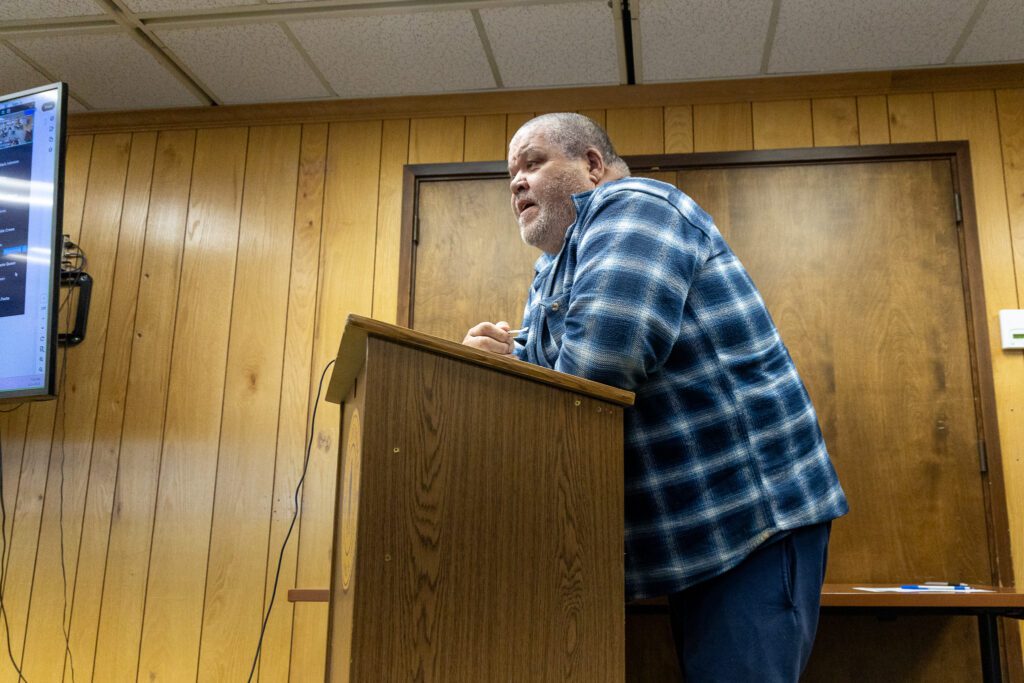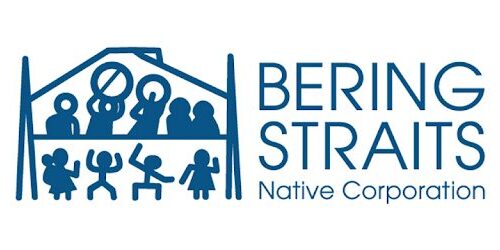Bering Straits Native Corporation will join other institutions around the country in requiring its employees to be vaccinated against COVID-19 by August 1st. KNOM has more on one of the first Alaska companies to take this step.
Bering Straits, based in Nome on the Seward Peninsula, is owned by 8,000 Alaska Native shareholders.
Its mandate applies to employees of the Native regional corporation, as well as employees of their subsidiaries. The corporation’s board approved the decision and announced it in mid-March.
Spokeswoman Miriam Aarons said that as an Alaska Native corporation, BSNC made the decision with both its history and values in mind.
“Unlike the flu that devastated Seward Peninsula a century ago, COVID-19 can be controlled. At Bering Straits, we believe that the best way to protect the health and lives of our people and honor our Elders and ancestors is by supporting widespread vaccination efforts.”
-Miriam Aarons, Communications Director for Bering Straits Native Corporation
Aarons referred to the 1918 Spanish-flu pandemic, which some estimate may have taken the lives of 40% or more of Alaska Native people living on the Seward Peninsula.
“Countless children were left orphaned without ties and family to learn from and pass along traditions, culture, heritage… that pandemic left a very painful scar on our region and negatively affected our Native customs traditions in ways that endure to this very day.”
The decision to require vaccination isn’t unprecedented, although BSNC is one of the most prominent entities in Alaska to be public with their decision. Rutgers University in New Jersey made national headlines as the first university to mandate that students be vaccinated to attend the campus next fall.
The Bering Strait region’s other large native corporation, Sitnasuak Native Corporation, has not yet made such a mandate.
Legal questions have swirled around vaccine mandates, partly because none of the available COVID-19 vaccines are fully approved by the Food and Drug Administration — instead, they have been authorized for emergency-use.
Despite that, Stanford Professor of Law and Medicine Michelle Mello thinks it is likely that employer COVID-19 vaccine mandates are legal.
“We have lots of laws that protect the rights of employees against workplace discrimination of various kinds. But they all recognize that when it comes to infectious disease, there needs to be exceptions to the general rule that we ought to allow those personal liberties a wide berth. Employers can do lots of things that are necessary to keep the workplace safe, and indeed they are obligated to provide employees with a safe workplace. Our legal structures balance those competing interests.”
But Mello said the law does require employees to make certain exceptions to avoid discrimination against people who can’t be vaccinated.
The Alaska Department of Law declined to answer questions about vaccine mandates. But it shared a memorandum to state legislators that acknowledges that private businesses can take some action to restrict access based on vaccination status. But it also says that the authority of a private business might be limited in cases in which individuals have medical or religious objections.
Those are being considered said BSNC Spokeswoman Miriam Aarons.
“We are making reasonable accommodations for employees with valid documented medical reasons or religious objections on a case by case basis.”
The mandate applies to BSNC’s subsidiaries, too, and one of their largest is the statewide chain of Alaska Industrial Hardware stores. Terry Shurtleff is the chain’s chief executive, and he said he’s been worried about his employees’ health and safety since the beginning of the pandemic.
“We were considered fundamental industries or essential businesses. So all of our people have been exposed to anywhere between two and 5,000 people a day, coming to our stores.”
– Terry Shurtleff, AIH President and CEO
Shurtleff said he sees the COVID-19 vaccine as another tool for workplace safety.
“This is obviously a little bit more invasive because you’re asking a person to take a shot, but I think of friends of mine who are working on Prudhoe Bay– if they don’t use an approved safety knife or approved eyewear or approved hand protection, they don’t have a job anymore.”
Aarons said most employees have been supportive and pointed to high vaccination rates in the Bering Straits region as evidence that employees were getting the shots before the corporation’s mandate. BSNC and its subsidiaries employ nearly 2,000 people throughout the entire state of Alaska and throughout the country.
There’s been some degree of social media backlash against the companies’ mandates, though, and Shurtleff said there’s been more pushback from the greater community.
“If some of our customers choose not to do business with us, because we’ve decided to protect our people and protect the communities that we serve and protect their families, then I’d respect their right to do that.”
The BSNC mandate takes effect August 1st to allow employees time to be vaccinated in areas where the shots are not yet widely available. The corporation’s decision could set the precedent for other Alaska businesses to do the same, but so far, few others have announced any mandates.
Image at top: Logo of Bering Straits Native Corporation. Photo provided by BSNC.




